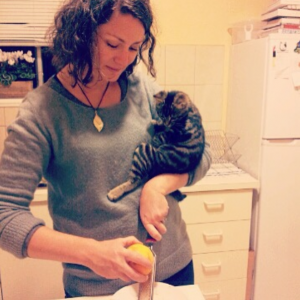Should you consider joining a writer’s organization?
Much like running, writing has a tendency to be a lengthy independent exercise. The road can often get lonely and desolate, and it can certainly be reassuring to see some fellow runners, or in this case writers, alongside. Regardless of which publishing route you choose – traditional or self-published, there’s still a long journey of self-promotion that lies ahead.
As a self-published author, you’re essentially taking on a new profession, and if this is your first book, there can be a steep learning curve ahead. But, having an outlet to gain advice and support from other writers can help drive momentum and establish a solid foundation as a writer.
Many authors look to a writer’s organization as an opportunity to turn an independent effort into a team sport. Whether it be a national organization with smaller regional branches, a provincial organization, or a niche specific group, you may want to consider joining one as part of your marketing and promotion strategy.
Here are some of the advantages of becoming a member of a writer’s organization:
- Support from a community of writers – In any given writer’s group, you’re guaranteed to have the opportunity to connect and interact with other authors, many of whom will have unique insights to bring to the discussion based on their own publishing experiences. In essence, they’re a great forum to gain feedback from fellow members of your craft.
- Networking opportunities – Most writer’s organizations arrange events and other interactive opportunities for you to meet with professionals in the publishing industry. Whether they be editors, reviewers, booksellers or other high-profile authors, writer’s organizations offer good settings to increase your author network.
- “How-To” guides and instructional information – One of the greatest advantages of writer’s groups (particularly at a national level,) is the knowledge base they can provide, especially to newcomers. From contracts and legalities to marketing and promotion, writer’s organizations are a great preliminary source for best practices in publishing.
- Access to readings programs – Some writer’s organizations provide their members with the opportunities to participate in pre-established events and speaking engagements. These can include subsidies to invite writers to perform at a school or public reading, which can act as a great gateway to showcase your book to appropriate markets.
- Access to apply for awards – Many writer’s organizations offer awards to recognize contributions to the literary industry, but the committee’s considerations are often limited to members only. By joining one of these organizations, you’ll have the opportunity to submit your work for award consideration.
- Writer’s Coalition Benefits – Many writer’s organizations include eligibility to participate in the group health and dental benefits plan through the Writer’s Coalition. If your principal profession is writing, it may be worth your while to have access to benefits, which aren’t usually available at a group rate in this trade.
- Credibility – In the publishing realm, having a membership to a writer’s organization can enhance your status and clout as an author. As a self-published author in particular, this can be an extremely valuable confidence boost when you’re first starting out.












